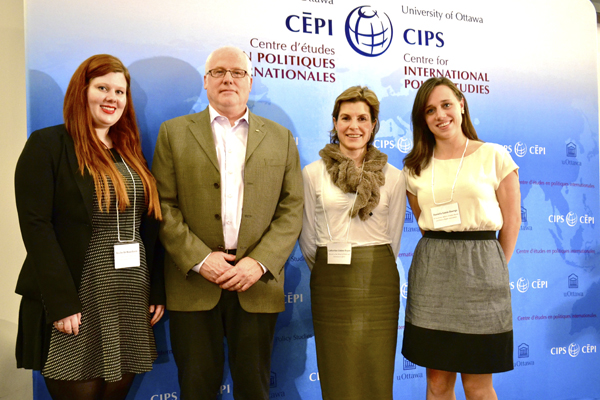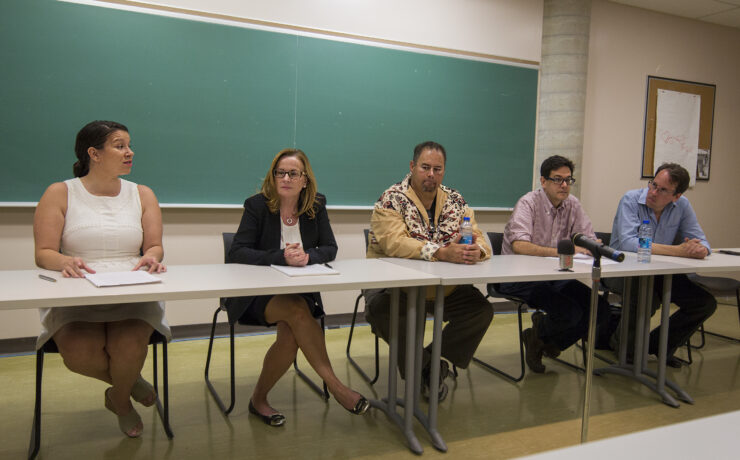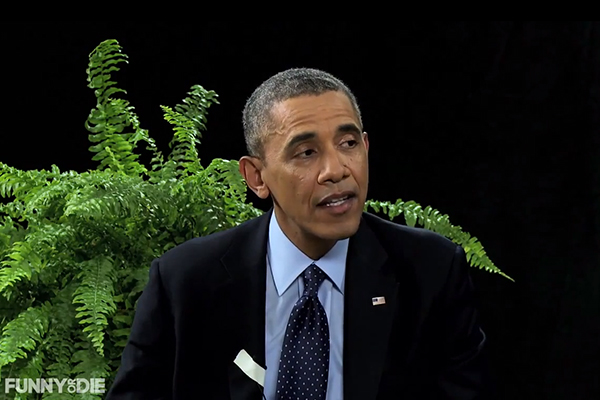Protecting refugee rights in Canada and how students can get involved
Photo by Julia Riddle
According to Alex Neve, students have both the power and the responsibility to take action in protecting refugees.
“People who have been displaced, people who are fleeing, people who are seeking a better life are far too often not considered to be free and equal, and the governments and society far too readily denigrate their dignity, and disregard their rights,” said Neve, Secretary General of Amnesty International.
To kick off the first ever Conflict Studies and Human Rights Students’ Association ECH week at the University of Ottawa on Monday, Feb. 3, the association had Neve speak about his passions: refugee and immigration law.
Neve’s career with Amnesty International began while studying at Dalhousie University, when he saw a poster for a meeting and was intrigued by the opportunity to take action and help make the world a better place.
He has been a member since the mid ‘80s and took the role as Secretary General in 2000. While he began his career practising law, he has taught law classes, and authored reports and studies for Amnesty International, parliamentary committees, and United Nations human rights bodies.
In his talk, he spoke of his experience conducting research in refugee camps in South Sudan and Côte D’Ivoire. He explained how in many conflict zones, internally displaced people have become second-class citizens and the best interests of the refugees are not being taken into consideration.
“So much of refugee protection relies on policies and decisions that sideline and disempower refugees themselves,” he said.
However, it’s often easier to look at other countries and point out their human rights violations rather than facing our own country’s less-than-perfect record. Neve has been instrumental in exposing Canada’s human rights issues, and in his speech, he forced us to re-think our own policies and rhetoric around refugees.
The new Designated Countries of Origins list is just one example of “a new, punitive spirit that has seeped into Canadian refugee law.”
This is not just “a trivial bureaucratic matter,” he said. “As a claimant on that list, you will not be allowed to appeal a rejection of your claim. You will never have eligibility for medical and health services.”
This, in addition to the slashing of the refugee health care program and the mandatory detention with limited ability to seek release for refugees arriving by boat, all clearly demonstrates that “more and more in Canadian refugee and immigration law the Universal Declaration’s promise of equality in human rights protection is eroding,” he said.
Neve calls Canadians to action, asking them to commit to equality, to tackle the rhetoric around refugees, and to put an end to refugee policy that rests on deterrence.
He said the best way for U of O students to get involved and take action is to volunteer.
“Volunteer at the women’s shelter down the street or a refugee camp across the world,” he said. “Anything makes a difference.”
Volunteer work provides experience with interpersonal relationships and understanding that students can’t always get from the classroom. Neve said this is necessary because “human rights, at its core, is about the heart.”





